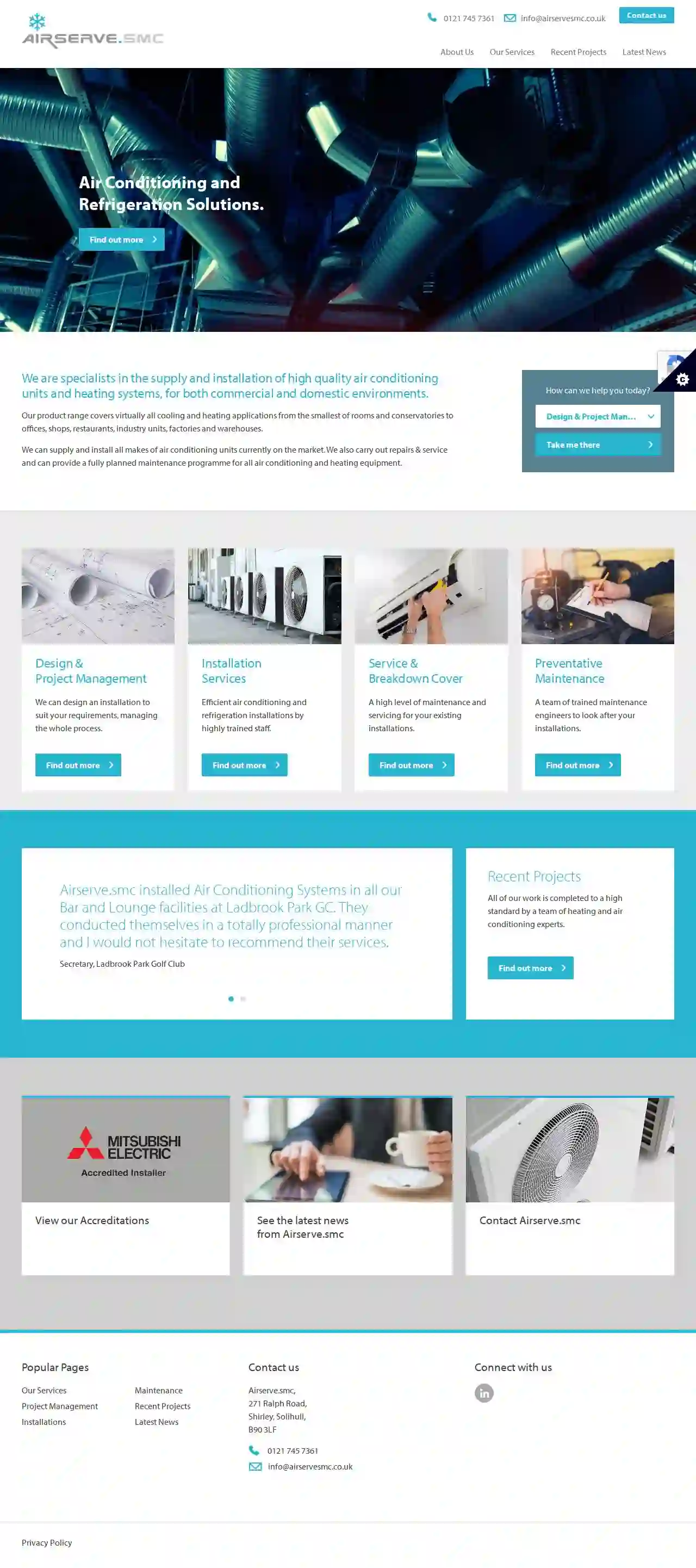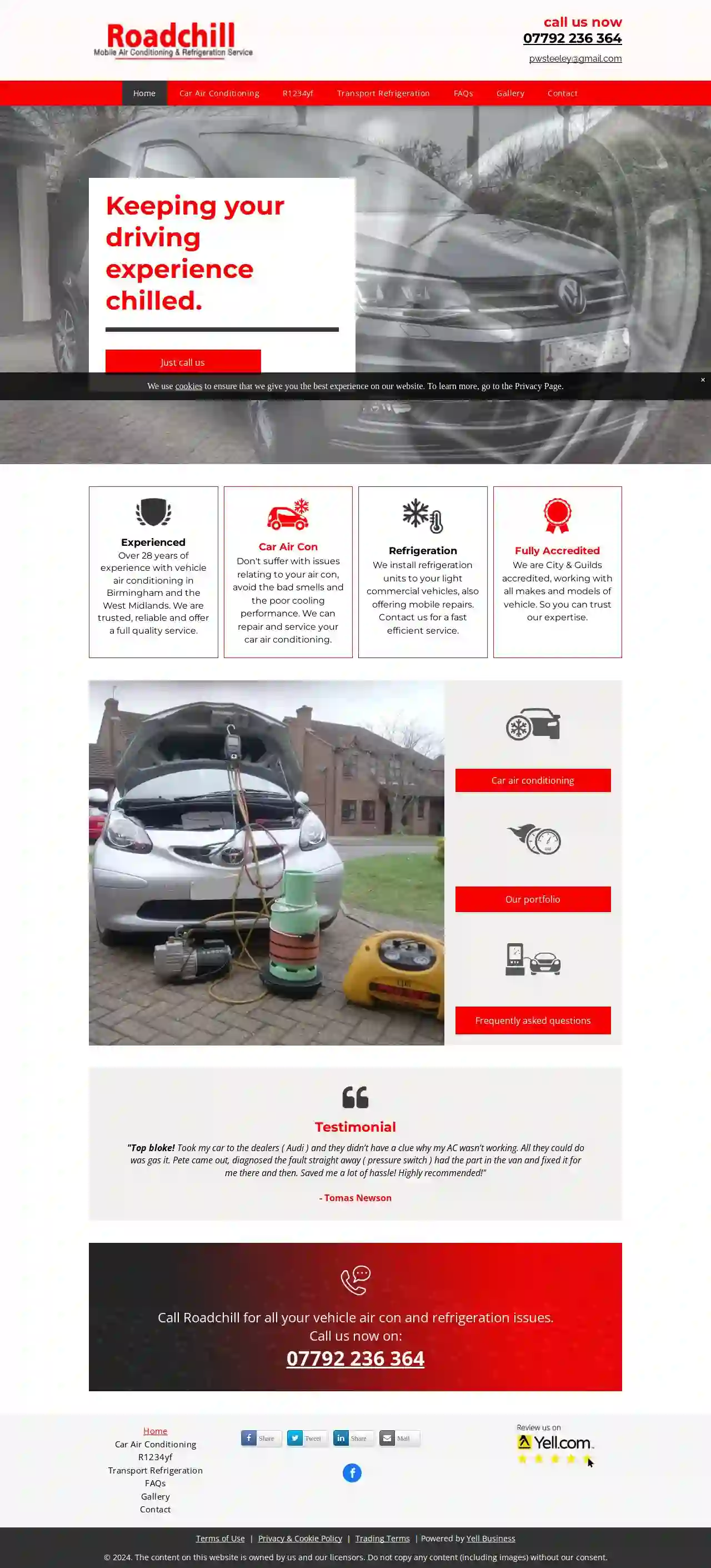Emergency HVAC Solihull
Best Emergency AC Repair in Solihull
Get 3 FREE After Hours HVAC quotes for your project today! Compare profiles, reviews, accreditations, portfolio, etc... and choose the best service.

Status Heating Limited
4.5265 reviewsBrook House, 153 Newborough Road, Solihull, B90 2HE, GBFor over 50 years Status Heating has provided unrivalled excellence in gas central heating installation, service and repair for domestic customers throughout the Central Region. We also provide services for Private Landlords and Letting Agents.
- Services
- Why Us?
- Accreditations
- Gallery
Get Quote
Airserve SMC
1271 Ralph Road, Solihull, B90 3LF, GBAirserve.smc is a specialist in the supply and installation of high quality air conditioning units and heating systems for both commercial and domestic environments. We cover a wide range of cooling and heating applications, from small rooms and conservatories to offices, shops, restaurants, industrial units, factories and warehouses. We can supply and install all makes of air conditioning units currently on the market and also carry out repairs, service and provide a fully planned maintenance programme for all air conditioning and heating equipment.
- Services
- Why Us?
- Testimonials
- Gallery
Get Quote
Roadchill
4.737 reviewsSolihull, GBKeeping your driving experience chilled.Just call us Experienced Over 28 years of experience with vehicle air conditioning in Birmingham and the West Midlands. We are trusted, reliable and offer a full quality service. Car Air Con Don't suffer with issues relating to your air con, avoid the bad smells and the poor cooling performance. We can repair and service your car air conditioning. Refrigeration We install refrigeration units to your light commercial vehicles, also offering mobile repairs. Contact us for a fast efficient service. Fully Accredited We are City & Guilds accredited, working with all makes and models of vehicle. So you can trust our expertise.
- Services
- Why Us?
- Accreditations
- Our Team
- Testimonials
- Gallery
Get Quote- So
Solihull Boiler Installations
52 reviewsSolihull, GB- Services
- Why Us?
Get Quote - Qu
Quality Gas Audit Services Ltd
11 reviewsSolihull, GB- Services
- Why Us?
Get Quote - so
solihull plumber
4.647 reviewsSolihull, GB- Services
- Why Us?
Get Quote - So
Solihull Heating & Bathrooms
51 reviewsSolihull, GB- Services
- Why Us?
Get Quote - So
Solihull Plumbing & Drainage
4.619 reviewsSolihull, GB- Services
- Why Us?
Get Quote - Ec
Eco Flame Heating & Plumbing Services solihull
4.726 reviewsSolihull, GB- Services
- Why Us?
Get Quote - So
Solihull Heating & Plumbing
3.86 reviewsSolihull, GB- Services
- Why Us?
Get Quote
Over 16,895+ HVAC Companies registered
Our HVAC pros operate in Solihull & surroundings!
HVACCompaniesHub has curated and vetted the Best HVAC Companies arround Solihull. Find a top & reliable pro today.
Frequently Asked Questions About Emergency HVAC Services
- Lower Your Thermostat: Set your thermostat to a lower temperature when you are away or asleep. Consider installing a smart thermostat for precise temperature control.
- Seal Air Leaks: Seal gaps and cracks around windows, doors, and other openings to prevent heat loss.
- Improve Insulation: Make sure your home is properly insulated.
- Annual Furnace Maintenance: Annual servicing ensures your system is functioning optimally.
- Use Window Coverings: Close curtains or blinds at night to retain heat.
- Change or clean air filters every 1-3 months.
- Clear debris from around the outdoor unit.
- Check and clean the evaporator coil (if accessible).
- Inspect refrigerant lines for leaks.
How long does it take for an emergency HVAC technician to arrive?
What is the best way to heat my home efficiently?
How do I maintain my air conditioner?
Are emergency HVAC services more expensive?
How long does it take for an emergency HVAC technician to arrive?
What is the best way to heat my home efficiently?
- Lower Your Thermostat: Set your thermostat to a lower temperature when you are away or asleep. Programmable thermostats automate this process, helping you save money.
- Seal Air Leaks: Seal gaps and cracks around windows, doors, and other openings to prevent heat loss.
- Improve Insulation: Make sure your home is properly insulated.
- Annual Furnace Maintenance: Keep your furnace running efficiently with annual inspections and tune-ups.
- Use Window Coverings: Close curtains or blinds at night to retain heat.
How do I maintain my air conditioner?
- Change or clean air filters every 1-3 months.
- Clear debris from around the outdoor unit.
- Check and clean the evaporator coil (if accessible).
- Inspect refrigerant lines for leaks.